Chenyu Shen
EVIL: Evidential Inference Learning for Trustworthy Semi-supervised Medical Image Segmentation
Jul 18, 2023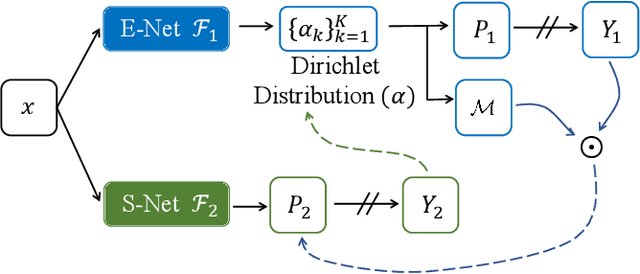

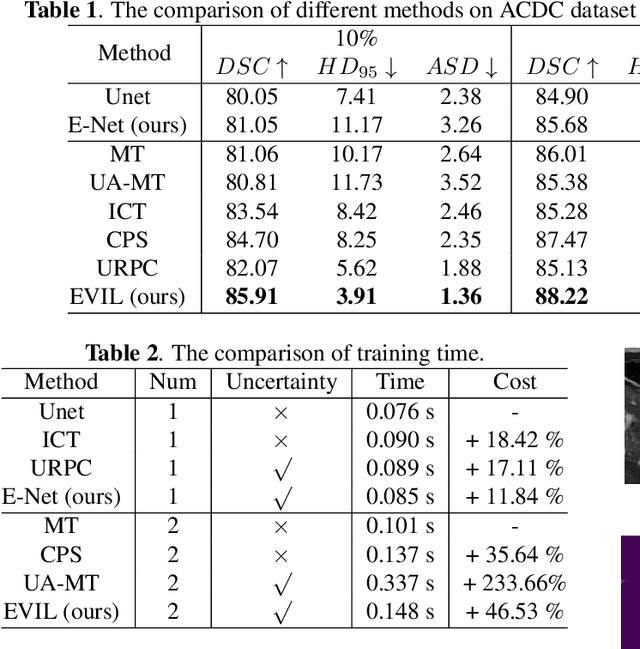

Abstract:Recently, uncertainty-aware methods have attracted increasing attention in semi-supervised medical image segmentation. However, current methods usually suffer from the drawback that it is difficult to balance the computational cost, estimation accuracy, and theoretical support in a unified framework. To alleviate this problem, we introduce the Dempster-Shafer Theory of Evidence (DST) into semi-supervised medical image segmentation, dubbed Evidential Inference Learning (EVIL). EVIL provides a theoretically guaranteed solution to infer accurate uncertainty quantification in a single forward pass. Trustworthy pseudo labels on unlabeled data are generated after uncertainty estimation. The recently proposed consistency regularization-based training paradigm is adopted in our framework, which enforces the consistency on the perturbed predictions to enhance the generalization with few labeled data. Experimental results show that EVIL achieves competitive performance in comparison with several state-of-the-art methods on the public dataset.
Unsupervised PET Reconstruction from a Bayesian Perspective
Oct 29, 2021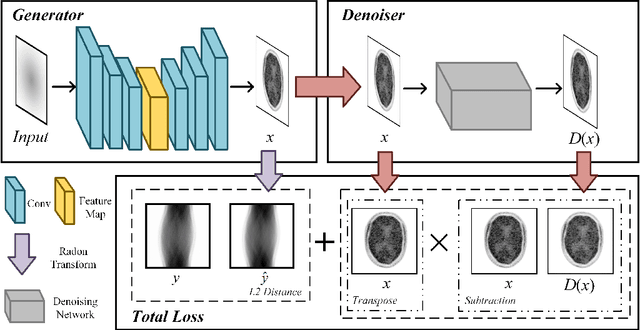
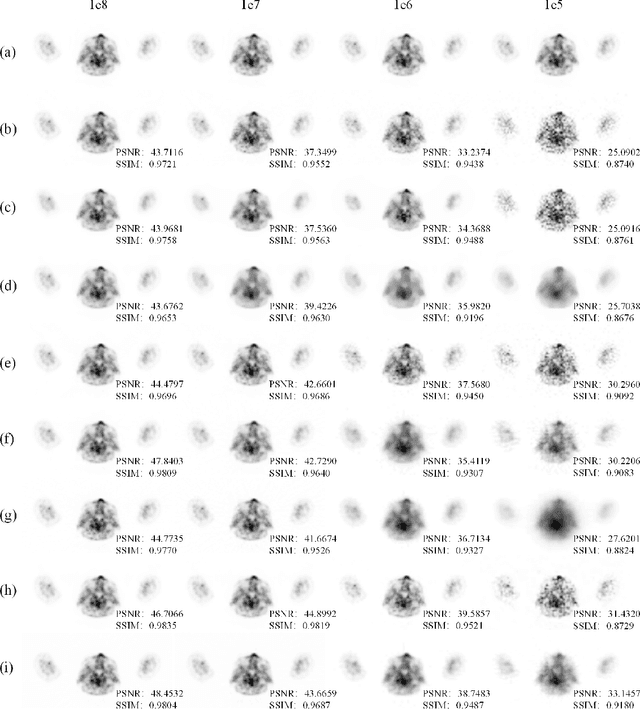
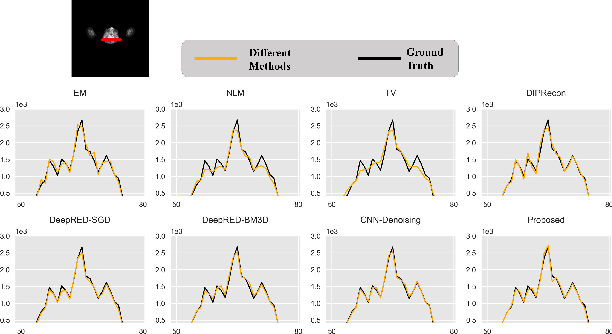

Abstract:Positron emission tomography (PET) reconstruction has become an ill-posed inverse problem due to low-count projection data, and a robust algorithm is urgently required to improve imaging quality. Recently, the deep image prior (DIP) has drawn much attention and has been successfully applied in several image restoration tasks, such as denoising and inpainting, since it does not need any labels (reference image). However, overfitting is a vital defect of this framework. Hence, many methods have been proposed to mitigate this problem, and DeepRED is a typical representation that combines DIP and regularization by denoising (RED). In this article, we leverage DeepRED from a Bayesian perspective to reconstruct PET images from a single corrupted sinogram without any supervised or auxiliary information. In contrast to the conventional denoisers customarily used in RED, a DnCNN-like denoiser, which can add an adaptive constraint to DIP and facilitate the computation of derivation, is employed. Moreover, to further enhance the regularization, Gaussian noise is injected into the gradient updates, deriving a Markov chain Monte Carlo (MCMC) sampler. Experimental studies on brain and whole-body datasets demonstrate that our proposed method can achieve better performance in terms of qualitative and quantitative results compared to several classic and state-of-the-art methods.
 Add to Chrome
Add to Chrome Add to Firefox
Add to Firefox Add to Edge
Add to Edge